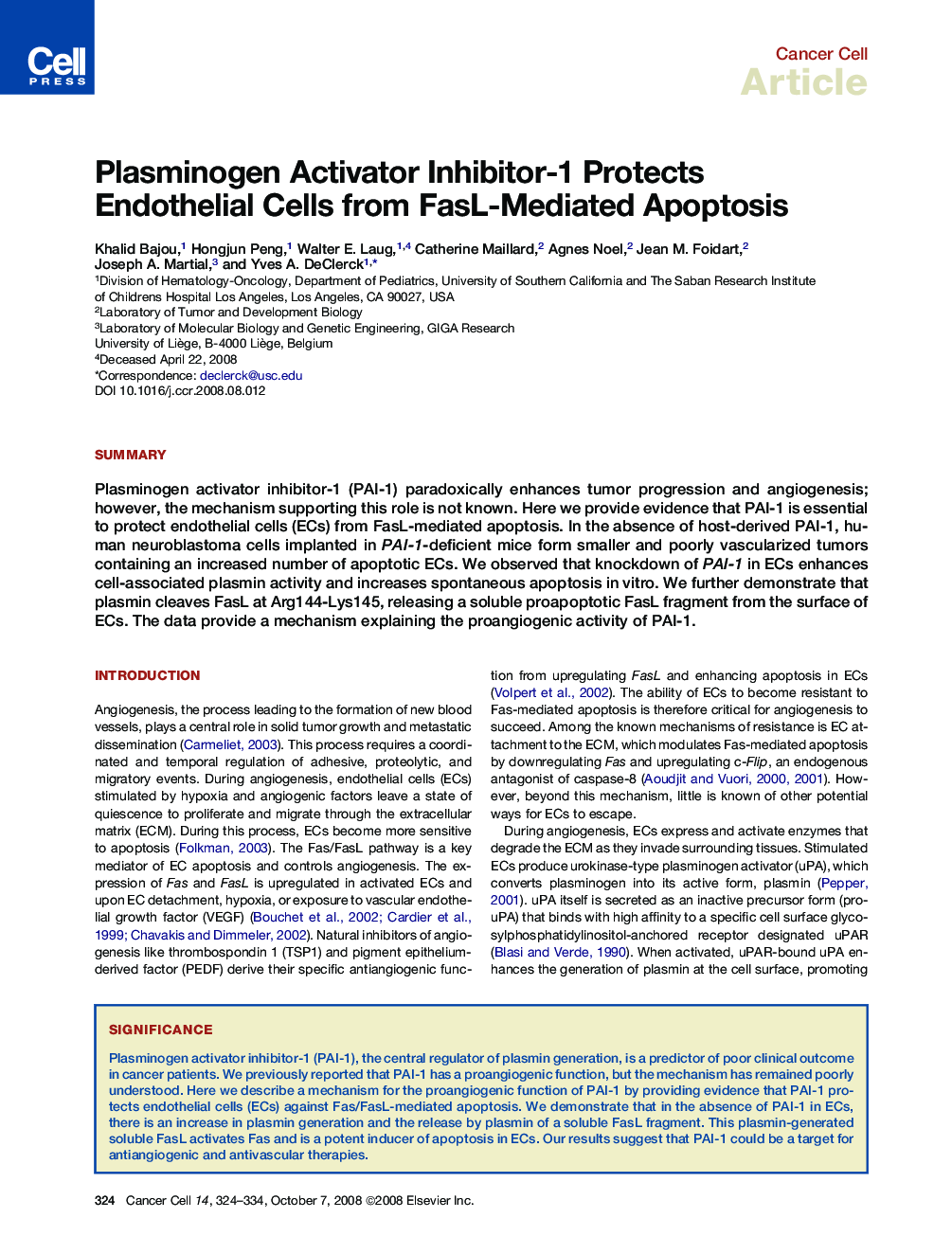| Article ID | Journal | Published Year | Pages | File Type |
|---|---|---|---|---|
| 2107728 | Cancer Cell | 2008 | 11 Pages |
SummaryPlasminogen activator inhibitor-1 (PAI-1) paradoxically enhances tumor progression and angiogenesis; however, the mechanism supporting this role is not known. Here we provide evidence that PAI-1 is essential to protect endothelial cells (ECs) from FasL-mediated apoptosis. In the absence of host-derived PAI-1, human neuroblastoma cells implanted in PAI-1-deficient mice form smaller and poorly vascularized tumors containing an increased number of apoptotic ECs. We observed that knockdown of PAI-1 in ECs enhances cell-associated plasmin activity and increases spontaneous apoptosis in vitro. We further demonstrate that plasmin cleaves FasL at Arg144-Lys145, releasing a soluble proapoptotic FasL fragment from the surface of ECs. The data provide a mechanism explaining the proangiogenic activity of PAI-1.
